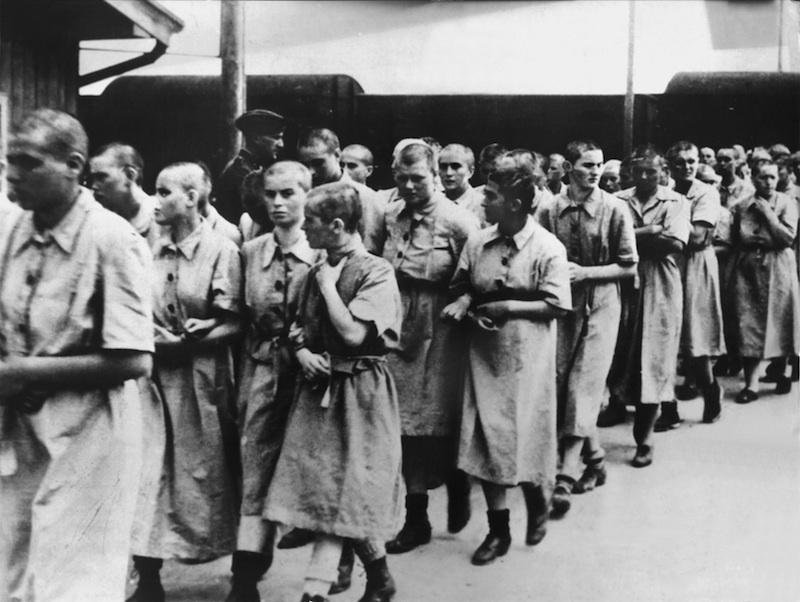BERLIN (AP) — A modern production of Richard Wagner’s opera “Tannhauser” is causing a stir in Germany because of Nazi-themed scenes showing people dying in gas chambers and members of a family having their heads shaved before being executed.
A spokeswoman for the Dusseldorf opera house said Tuesday that members of the audience “booed and were shocked” by Saturday’s opening performance.
Monika Doll said the company of Deutsche Oper am Rhein is debating whether to tone down the provocative parts, added to the original by producer Burkhard Kosminski.
“Members of the audience booed and banged the doors when they left the opera house in protest before the end of the show,” the head of the city’s Jewish community told The Associated Press on Tuesday. Michael Szentei-Heise called the adaptation at the city’s Deutsche Oper am Rhein “tasteless and not legitimate.”
The director, Christoph Meyer, said in a statement that the opera company never wanted to hurt the feelings of the viewers. “This is not about mocking the victims, but mourning them,” Meyer said.
At the opening of the Duesseldorf performance, performers could be seen inside glass chambers, falling to the floor as white fog flowed — an allusion to the mass killings of the Jews in the Nazis’ death camps. After a half hour, the music stopped and a family stepped on stage. The parents and their children were having their hair shaved off and then they are shot dead — another reference to treatment of Jewish captives during the Holocaust.
The original Tannhauser opera is set in the Middle Ages and was first performed in Dresden in 1845. It is based on a traditional ballad about the bard Tannhauser and features a singing contest at the Wartburg Castle in south-central Germany.
Szentei-Heise, the Jewish community leader, objected to the inclusion of scenes reminiscent of the Holocaust, which occurred nearly a century after the opera was first performed.
“This opera has nothing to do with the Holocaust,” Szentei-Heise said. “However, I think the audience has made this very clear to the opera and the producer.”
Wagner, an ardent anti-Semite, remains a controversial figure in Germany and elsewhere nearly 130 years after his death. Adolf Hitler was an admirer, and playing Wagner’s music is still considered a taboo in Israel.
Copyright 2013 The Associated Press.






